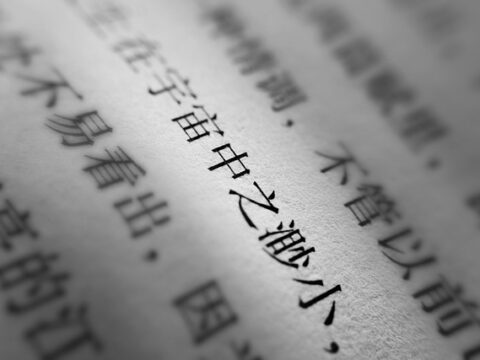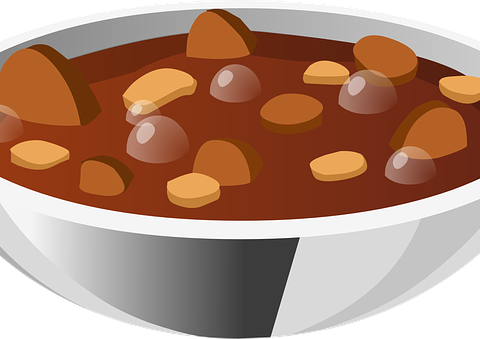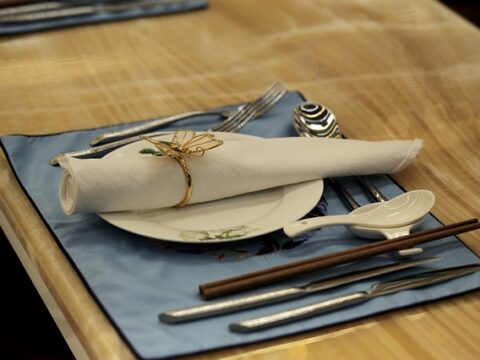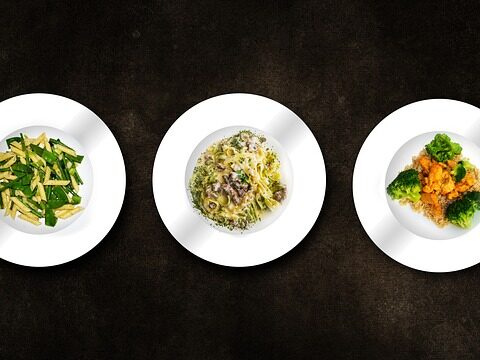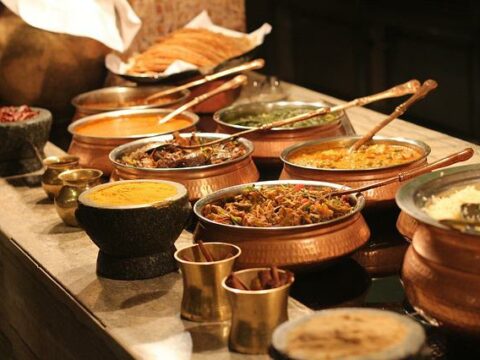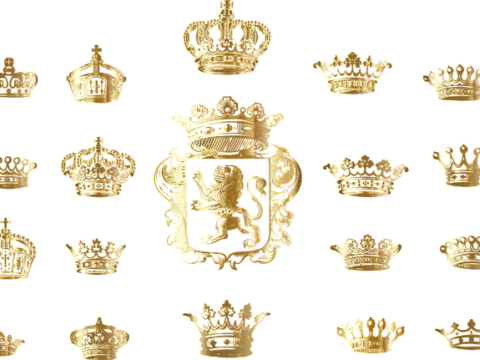Tag: knowledge
World Literature – Chinese Literature – Chinese Language Learning and Improvement
《寒(hán)窑(yáo)赋(fù)》原(yuán)文(wén)如(rú)下(xià): 天有不测风云(tiān yǒu bú cè fēng yún),人有旦夕祸福(rén yǒu dàn xī huò fú)。蜈蚣(wú gōng)百(bǎi)足(zú),行(xíng)不(bù)及(jí)蛇(shé);雄鸡(xióng jī)两翼(liǎng yì),飞(fēi)不过(bú guò)鸦(yā)。马(mǎ)有(yǒu)千(qiān)里(lǐ)之(zhī)程(chéng),无(wú)骑(qí)不能(bù néng)自(zì)往(wǎng);人(rén)有(yǒu)冲(chōng)天(tiān)之(zhī)志(zhì),非(fēi)运(yùn)不(bù)能(néng)自(zì)通(tōng)。盖(gài)闻(wén):人(rén)生(shēng)在(zài)世(shì),富(fù)贵(guì)不(bù)能(néng)淫(yín),贫(pín)贱(jiàn)不(bù)能(néng)移(yí)。 文章(wénzhāng)盖世(gàishì),孔子(kǒngzǐ)厄(è)于陈邦(yúchénbāng);武略(wǔlüè)超群(chāoqún),太公(tàigōng)钓(diào)于(yú)渭(wèi)水(shuǐ)。颜(yán)渊(yuān)命(mìng)短(duǎn),殊(shū)非(fēi)凶恶(xiōngè)之(zhī)徒(tú);盗(dào)跖(zhí)年长(niánzhǎng),岂是(qǐshì)善良(shànliáng)之辈(zhībèi)。尧帝(yáodì)明(míng)圣(shèng), 却(què)生(shēng)不肖(búxiào)之(zhī)儿(ér);瞽(gǔ)叟(sǒu)愚顽(yúwán),反(fǎn)生(shēng)大(dà)孝(xiào)之(zhī)子(zǐ)。张良(zhāngliáng)原(yuán)是(shì)布衣(bùyī),萧何(xiāohé)称谓(chēngwèi)县吏(xiànlì)。晏子身(yànzǐshēn)无(wú)五(wǔ)尺(chǐ),封(fēng)作(zuò)齐国(qíguó)宰相(zǎixiàng);孔明(kǒngmíng)卧(wò)居(jū)草(cǎo)庐(lú),能(néng)作(zuò)蜀汉(shǔhàn)军师(jūnshī)。楚(chǔ)霸(bà)虽(suī)雄(xióng),败(bài)于(yú)乌江(wūjiāng)自刎(zìwěn);汉王(hànwáng)虽(suī)弱(ruò),竟(jìng)有(yǒu)万(wàn)里(lǐ)江山(jiāngshān)。李(lǐ)广(guǎng)有(yǒu)射(shè)虎(hǔ)之(zhī)威(wēi),到(dào)老(lǎo)无(wú)封(fēng);冯(féng)唐(táng)有(yǒu)乘(chéng)龙(lóng)之(zhī)才(cái),一(yì)生(shēng)不(bú)遇(yù)。韩(hán)信(xìn)未(wèi)遇(yù)之(zhī)时(shí),无(wú)一(yí)日(rì)三(sān)餐(cān),及(jí)至(zhì)遇(yù)行(háng),腰(yāo)悬(xuán)三(sān)尺(chǐ)玉(yù)印(yìn),一(yí)旦(dàn)时(shí)衰(shuāi),死(sǐ)于(yú)阴(yīn)人(rén)之(zhī)手(shǒu)。 有(yǒu)先(xiān)贫(pín)而后(érhòu)富(fù),有(yǒu)老(lǎo)壮(zhuàng)而(ér)少(shǎo)衰(shuāi)。满腹(mǎnfù)文章(wénzhāng),白发(báifà)竟然(jìngrán)不(bù)中(zhōng);才(cái)疏(shū)学(xué)浅(qiǎn),少(shào)年(nián)及(jí)第(dì)登(dēng)科(kē)。深(shēn)院(yuàn)宫(gōng)娥(é),运(yùn)退(tuì)反(fǎn)为(wéi)妓(jì)妾(qiè);风(fēng)流(liú)妓(jì)女(nǚ),时(shí)来(lái)配(pèi)作(zuò)夫(fū)人(rén)。青(qīng)春(chūn)美(měi)女(nǚ),却(què)招(zhāo)愚(yú)蠢(chǔn)之(zhī)夫(fū);俊(jùn)秀(xiù)郎(láng)君(jūn),反(fǎn)配(pèi)粗(cū)丑(chǒu)之(zhī)妇(fù)。蛟(jiāo)龙(lóng)未(wèi)遇(yù),潜(qián)水(shuǐ)于(yú)鱼(yú)鳖(biē)之(zhī)间(jiān);君(jūn)子(zǐ)失(shī)时(shí),拱(gǒng)手(shǒu)于(yú)小(xiǎo)人(rén)之(zhī)下(xià)。衣(yī)服(fu)虽(suī)破(pò),常(cháng)存(cún)仪(yí)礼(lǐ)之(zhī)容(róng);面(miàn)带(dài)忧(yōu)愁(chóu),每(měi)抱(bào)怀(huái)安(ān)之(zhī)量(liàng)。时(shí)遭(zāo)不(bú)遇(yù),只(zhī)宜(yí)安(ān)贫(pín)守(shǒu)份(fèn);心(xīn)若(ruò)不(bù)欺(qī),必(bì)然(rán)扬(yáng)眉(méi)吐(tǔ)气(qì)。初(chū)贫(pín)君(jūn)子(zǐ),天(tiān)然(rán)骨(gǔ)骼(gé)生(shēng)成(chéng);乍(zhà)富(fù)小(xiǎo)人(rén),不(bù)脱(tuō)贫(pín)寒(hán)肌(jī)体(tǐ)。天(tiān)不(bù)得(dé)时(shí),日(rì)月(yuè)无(wú)光(guāng);地(dì)不(bù)得(dé)时(shí),草(cǎo)木(mù)不(bù)生(shēng);水(shuǐ)不(bù)得(dé)时(shí),风(fēng)浪(làng)不(bù)平(píng);人(rén)不(bù)得(dé)时(shí),利(lì)运(yùn)不(bù)通(tōng)。注(zhù)福(fú)注(zhù)禄(lù),命(mìng)里(lǐ)已(yǐ)安(ān)排(pái)定(dìng),富(fù)贵(guì)谁(shuí)不(bù)欲(yù)?人(rén)若(ruò)不(bù)依(yī)根(gēn)基(jī)八(bā)字(zì),岂(qǐ)能(néng)为(wéi)卿(qīng)为(wéi)相(xiāng)? 吾(wú)昔(xī)寓(yù)居(jū)洛(luò)阳(yáng),朝(cháo)求(qiú)僧(sēng)餐(cān),暮(mù)宿(xiǔ)破(pò)窖(jiào),思(sī)衣(yī)不(bù)可(kě)遮(zhē)其(qí)体(tǐ),思(sī)食(shí)不(bù)可(kě)济(jì)其(qí)饥(jī),上(shàng)人(rén)憎(zēng),下(xià)人(rén)厌(yàn),人(rén)道(dào)我(wǒ)贱(jiàn),非(fēi)我(wǒ)不(bù)弃(qì)也(yě)。今(jīn)居(jū)朝(cháo)堂(táng),官(guān)至(zhì)极(jí)品(pǐn),位(wèi)置(zhì)三(sān)公(gōng),身(shēn)虽(suī)鞠(jū)躬(gōng)于(yú)一(yì)人(rén)之(zhī)下(xià),而(ér)列(liè)职(zhí)于(yú)千(qiān)万(wàn)人(rén)之(zhī)上(shàng),有(yǒu)挞(tà)百(bǎi)僚(liáo)之(zhī)杖(zhàng),有(yǒu)斩(zhǎn)鄙(bǐ)吝(lìn)之(zhī)剑(jiàn),思(sī)衣(yī)而(ér)有(yǒu)罗(luó)锦(jǐn)千(qiān)箱(xiāng),思(sī)食(shí)而(ér)有(yǒu)珍(zhēn)馐(xiū)百(bǎi)味(wèi),出(chū)则(zé)壮(zhuàng)士(shì)执(zhí)鞭(biān),入(rù)则(zé)佳(jiā)人(rén)捧(pěng)觞(shāng),上(shàng)人(rén)宠(chǒng),下(xià)人(rén)拥(yōng)。人(rén)道(dào)我(wǒ)贵(guì),非(fēi)我(wǒ)之(zhī)能(néng)也(yě),此(cǐ)乃(nǎi)时(shí)也(yě)、运(yùn)也(yě)、命(mìng)也(yě)。 嗟(jiē)呼(hū)!人(rén)生(shēng)在(zài)世(shì),富(fù)贵(guì)不(bù)可(kě)尽(jìn)用(yòng),贫(pín)贱(jiàn)不(bù)可(kě)自(zì)欺(qī),听(tīng)由(yóu)天地(tiāndì)循环(xúnhuán),周(zhōu)而(ér)复(fù)始(shǐ)焉(yān)。 )()()()()()() 《寒(hán)窑(yáo)赋(fù)》译(yì)文(wén)如(rú)下(xià): 天气(tiānqì)有(yǒu)预测(yùcè)不(bù)到(dào)的(de)风(fēng)和(hé)云(yún),人(rén)也(yě)会(huì)有(yǒu)早晚(zǎowǎn)遇到(yùdào)的(de)灾祸(zāihuò)与(yǔ)喜事(xǐshì)。蜈蚣(wúgōng)有(yǒu)上百(shàngbǎi)只(zhī)足(zú),但(dàn)却(què)不(bù)如(rú)蛇(shé)行(xíng)走(zǒu)得(dé)好(hǎo)。家(jiā)鸡(jī)翅(chì)膀(bǎng)虽(suī)然(rán)很(hěn)大(dà),却(què)不(bù)能(néng)像(xiàng)鸟(niǎo)一(yí)样(yàng)飞(fēi)行(xíng)。马(mǎ)虽(suī)然(rán)能(néng)行(xíng)走(zǒu)千(qiān)里(lǐ)之(zhī)遥(yáo),但(dàn)没(méi)有(yǒu)人(rén)驾(jià)驭(yù)也(yě)不(bù)能(néng)自(zì)己(jǐ)到(dào)达(dá)目(mù)的(dì)地(dì)。人(rén)有(yǒu)远(yuǎn)大(dà)的(de)理(lǐ)想(xiǎng),但(dàn)缺(quē)乏(fá)机(jī)遇(yù)就(jiù)不(bù)能(néng)实(shí)现(xiàn)。…
It’s easy to make delicious stewed beef by yourself
How to eat the beef will be better, you can try the beef stew, the method is very simple. It’s a big mistake to buy…
Western food culture – > table culture – > etiquette of eating (soup, bread, salad, seafood, meat, fruit, dessert) (common sense)
Etiquette about drinking soup The soup of Western food is divided into the clear soup and thick soup. More formal restaurants use oval spoons and…
Western food culture – > table culture – > knife and fork Etiquette (common sense)
order Interpretation of etiquette content 1 It is forbidden to use your own tableware to make dishes for others. 2 Put knives and forks on…
A classic cuisine of one country (34 kinds) (common sense)
order Region / Country Food Name summary 1 The United Arab Emirates Shawarma Shawarma is one of the few foods that the public can afford…
Eight main series of dishes in china(common sense)
order Series name summary The main dishes it represents 1 Hui cuisine Anhui cuisine, namely Anhui cuisine, is the general name of Southern Anhui cuisine,…
The country with the most delicious food is also the most popular country for tourists (top 10)(Part II)
6: Japan Japanese food pursues taste and has strict requirements for shape. Naming is based on natural scenery, such as SONGFENG, Taoshan, etc. Modeling is…
The country with the most delicious food is also the most popular country for tourists (top 10)(Part I)
1、 Italy Italian diet features: it has a strong flavor and is famous for its original flavor. It is mainly cooked by frying, frying, frying,…
Fashion and dress can learn from Royal celebrities and their dressing skills.
The following is a list of famous Royal celebrities in the world who are very famous for their clothes according to the sorting of fashion…
The crown is a special piece of jewelry, which is the world’s most famous royal jewelry – crown(regardless of order)
order name Introduction and description 01 Russia’s big crown The most famous crown of the Russian Empire was made for the coronation of Queen Catherine…


